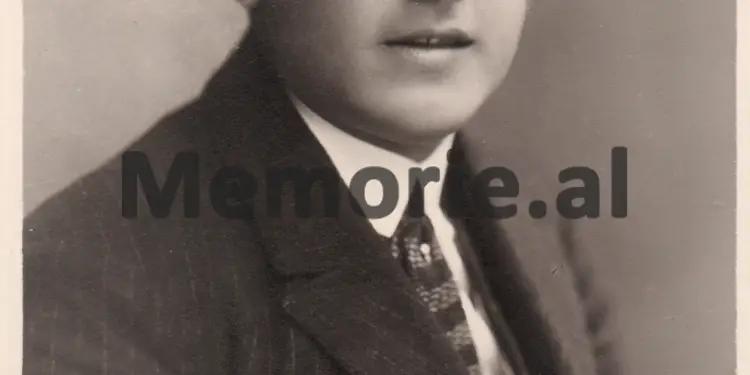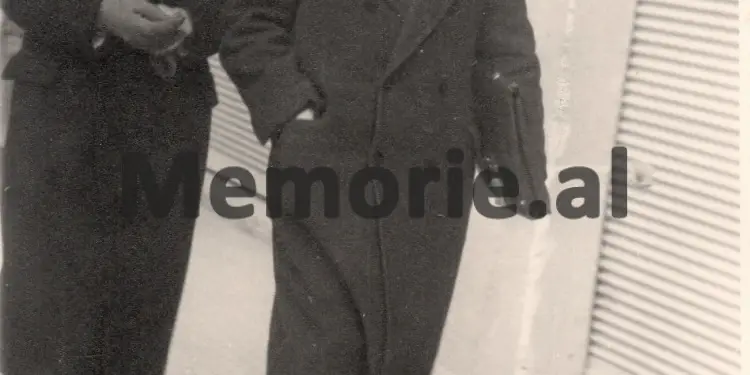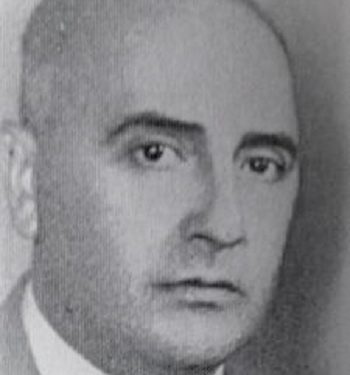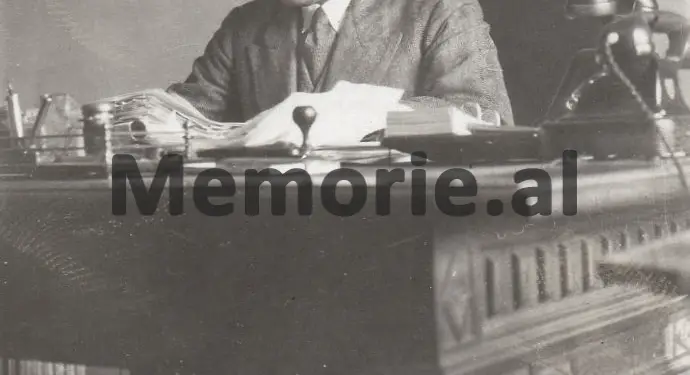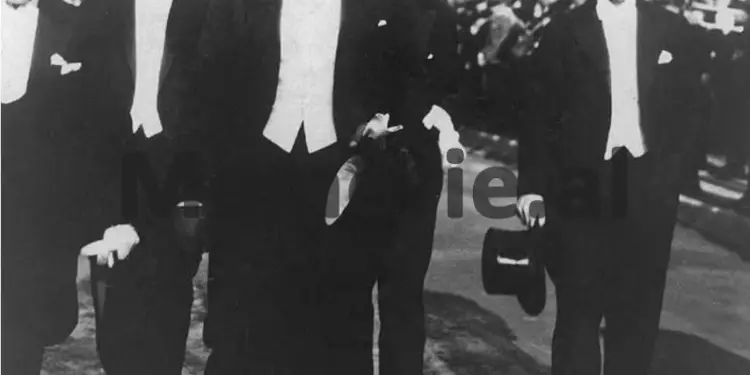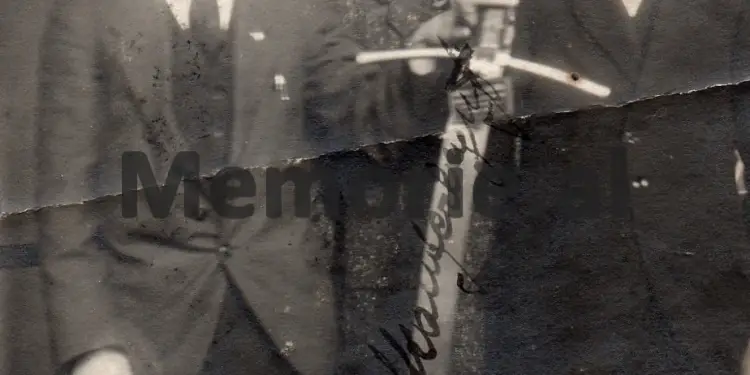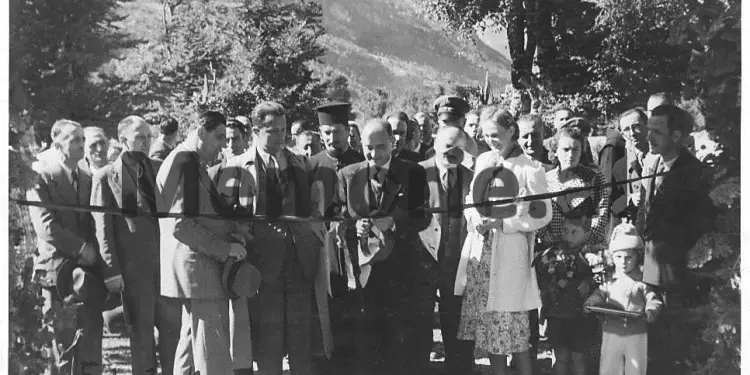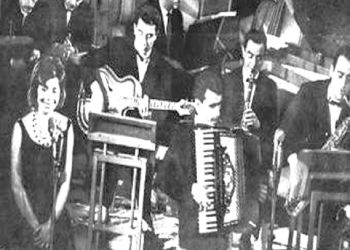By Arben Pustina
The twelfth part
-Rrok Gera, a proper statesman –
FORWARD
Memorie.al / This book aims to convey to the public the image of a perfect man, who lived in other times, but who was the best example, not only of what an ordinary man can represent, but, next first, as an example of a noble, distinguished, omniscient and, above all, honest statesman. Having in his genes the noble virtues of his origin, being formed as a personality in a wonderful environment, such as Shkodra at the beginning of the 20th century, and graduating from one of the most prestigious universities in Europe, such as that of In Vienna, Rrok Gera had all the potential to be one of the important figures who gave rise to a rapid development through comprehensive reforms in Albania in the 30s of the last century.
This development reached its peak with Mehdi Frashër’s government, considered perhaps the best Albanian government of all time, formed for the most part by non-political persons, among who was Rrok Gera. For 10 years, or more, as a minister or in other high state functions, he worked with conviction that he was walking on the right path for the consolidation of the Albanian state, a process for which he said he had no time to lose. Economist, financier, diplomat, lawyer, Gera was a specialist who advanced towards the top with his professionalism in an environment where the old factions, which were almost dominant in politics and governance, lost ground in front of young and educated people good.
Continues from last issue
MINISTER OF NATIONAL ECONOMY IN THE GOVERNMENT OF KOÇO KOTA
In continuation of the measures taken by the Ministry of National Economy for the benefit of agriculture, there was also the approval of the law on the exemption from customs taxes of seeds and various agricultural materials imported by this Ministry for itself, or for the account of farmers. In addition to ordinary seeds for planting, the law also included the exemption from customs taxes of seeds of industrial plants for planting, of equipment for the development of the beekeeping sector, as well as of various insecticides.
The condition to benefit from this measure was that farmers had to act only through the Ministry of National Economy. In terms of facilitating the activity of farmers, the Ministry of Economy issued another law, so that those who received free seeds for planting, did not pay in cash, but could issue a kind of guarantee certificate, where they would the elders and the mayors of the municipalities also signed. Meanwhile, everything in the Ministry of National Economy was taken very seriously, giving importance to seemingly small details. Thus, in the body of this ministry, entitled “National Economy”, there was a column entitled: “Conversations with the farmer”, in which farmers were given notices and practical examples for their daily activity, in agriculture or livestock.
In many of its issues, the magazine dealt with the issue of olives, specifying that in the whole country at the beginning of 1939 there were 1,500,000 olive roots, which brought in about 2,630,000 fr. gold annual income. In the column “Agricultural Chronicle”, the magazine gave examples of how the olive tree could be pruned, thus helping the activity of the people who were engaged in this work.180 Also, the magazine claimed that, during the last year, for the pruning of olives, the Ministry of The National Economy had trained about 40 teams of workers. There were also numerous circulars of the Ministry, where the agricultural offices in the districts were ordered, to determine the needs for seedlings of different types of olives, for the instruction of the farmers for the cultivation of the soil of the olive groves, for their fertilization, fighting diseases, etc. .
With the arrival of Rrok Gera in the Ministry of National Economy, famous foreign specialists approached this Ministry, such as: Egisto Tesi, prominent seedling specialist, prof. Dr. Aurelio Carrante, technical advisor for agriculture and general inspector at the Italian Ministry of Agriculture, Giuseppe de Rogatis, water specialist, etc. While the country had very few genuine specialists, the contribution of these personalities would be of great value to the Albanian economy.
In July 1938, the Ministry of National Economy, in cooperation with the Ministry of the Interior, ordered all municipalities to be careful to give the necessary assistance to the technicians who were dealing with the application of health measures for animals, after it was established that a number peasants, out of ignorance, did not take proper care of their animals. Meanwhile, the magazine “Hylli i Drita” wrote on its pages of October 1938, about the measures taken to protect cattle from the disease of scurvy,.
“The Ministry of National Economy, in order to save cattle from the risk of scurvy disease, has decided to help the farmers by giving them special steps, with loans, for a period of 8-6 months. Every villager can go to the Veterinary Office of his district and ask for the amount of steps he needs, giving only a credit receipt without any payment in hand”. Based on the veterinary service and animal husbandry law, in July 1938, the Ministry of National Economy decided to improve the functioning of the High Veterinary Council, making this Council meet up to 6 times a year, to discuss issues with importance for livestock.
Even, according to the instructions of the Minister, this Council, only during the month of August, met twice, on the 3rd and 17th, to discuss important topics, such as: the fight against the disease of scabies, scabies, strangula, cross-breeding, the possibility of preservation and storage of livestock products near the main ports, and many other issues. The Technical Commission of the Ministry of National Economy also organized meetings in the field, as was the case at the Bushati farm (the only farm of this type in Shkodra Prefecture), aiming at the development of the zootechnics branch in this area as well. Also, there were well-organized exhibitions or competitions of the agricultural and zootechnical sector, where farmers presented their best products, receiving prizes as appropriate.
Thus, in November 1938, a horse exhibition was opened in Fier, where local animals and foals crossed with imported stallions were presented. In accordance with the decisions on the improvement of the cattle breed, in September 1938, Minister Gera ordered all veterinary and agricultural offices to study the cattle breed in general in their districts and compile technical reports, which would were sent to the Ministry to then undertake a wider study, on a national scale.
In a justifying report sent to Parliament in December 1938, regarding the draft law “Import and export of zootechnical and agricultural products”, the Minister of National Economy, Rrok Gera, emphasized that it was very important to solve the problem of the lack of attractive animals for a plowing the agricultural land as deep as possible. One way to do this, according to the report, was to import oxen and horses of suitable breeds, duty free. The bill in question suggested that, once these types of animals had entered the country, their slaughter or export to other countries would be prohibited, as long as they were in working condition.
It also called for a ban on the export of all domestic animals deemed suitable for tillage. The draft law provided that food for these attractive farm animals would not be exported either, while this food could enter from abroad, duty-free. In the justifying report addressed to the Parliament, it was requested that the law did not allow the export of the skins of fat cattle, which the merchants took from abroad and then exported to Italy, filling the total quota of the export of skins to Italy, to the detriment of the skins of the country’s small cattle that, as a result, remained unsold, or were sold very cheaply.
On January 16, 1939, in the debate held in the Parliament on the draft law “Import and export of zootechnical and agricultural products”, Minister Rrok Gera emphasized that the main purpose of the draft law was to support the country’s livestock and, meanwhile, ensured that with regard to imports without customs tax, the government had anticipated everything, including the possibility of abuses: “…I said that this project was studied by the government from every point of view, and to avoid abuses, we have a special procedure in mind, i.e., a private person, in order to have the right to import these items without customs duty, is obliged to turn to the veterinarian or other bodies of his district, to indicate the quantity and type he needs together with the sample.
The veterinarian will forward the request to the Ministry of Economy, which, if it finds it reasonable, gives its consent or not. In Article 13, we foresee quite significant fines for those private individuals who use these items for purposes other than the purpose for which they were intended. I remember Mr. President, with these measures that the government has taken, it is in favor and the interest of the state is sufficiently protected. We want private individuals to be given freedom to bring these lands, and of course measures have been taken to stop any abuse…” Another measure taken in those years, this time to protect the forests was the limitation of the number of goats and determining the areas where they could be kept.
On this issue, in one of its columns for news from the country, “Hylli i Drita” wrote: “…To take into account the damage caused by goats in the forests, the Ministry of National Economy ordered the Veterinary, Agricultural and Forestry Offices, to jointly study areas where goats can be raised without damaging the forests. This measure is taken in order not to disappear the goat, which is the cow of the poor in our country, but to limit it, keeping it only in those areas where there are special places, dry mountains, etc., for growth of these animals, without damaging the forests. In relation to this principle followed by the Ministry, the opinions of foreign technicians were also taken, who were in favor of limiting goats…”.
A special commitment and very careful management required from the Ministry of Economy the situation of the epidemic of epizootic fever, which affected Albania in the winter of 1938-1939. The virus in question affected animals, mainly cattle and small cattle, which lived in herds, so its spread was fast and, as a result, caused serious damage to the livestock economy of the country. Meanwhile, there was a possibility that the virus could pass to humans.
According to dr. Vasfi Samimi, who wrote in the magazine “National Economy” in 1939, Albania was a country with an economy strongly based on livestock wealth, so a disease that hit this sector of the economy meant it was brought to its knees: “… In this way, it is easily understood that if Afta were to enter Albania, most of the national trade would be paralyzed. A dangerous consequence of this prohibition would be to cause prices to fall, and the husbandry and traders to suffer for their trouble. In Albania, plowing the land and moving carts was done almost 90% with carts and the arrival of this disease in Albania, would bring to the peasants, the lack of traction power”, wrote Samimi.
The alarm about the virus had been sounded as early as 1938, but the problem became very worrisome with the appearance of the virus in Yugoslavia on November 14, 1938, as there was much movement of the organism in the northern border villages, based on some bilateral agreements. In this way, the veterinary service, as well as the Albanian administration, followed step by step the development of the disease in the neighboring country and took protective measures in the meantime, quarantining entire mountain areas, for which life became very difficult, also due to the harsh winter. The measures included the passage of the veterinary structures of the coastal and southern areas, reinforcing the northern areas that were more at risk due to the border with Yugoslavia, as well as the exercise of numerous controls, accompanied by disinfection at the border crossings.
The measures were tightened, until the border was completely closed on December 21, 1938. At first, the border of Kukes prefecture was closed, then that of Shkodra, then Peshkopia and, finally, the prefecture of Korça. By order of the Minister of Economy, Rrok Gera, all administrative veterinary personnel and the gendarmerie were tasked to notify the minister by telegram or by phone, in case they had the slightest suspicion of the appearance of the virus. According to this order, the prefects entered into relations with the head of the veterinary group of each of the four designated areas (four specialists graduated, one in Vienna, the other in Turin, another in Bologna and the other in Toulouse) and determined once again the details of measures that had to be taken in that area.
…”These severe measures created many difficulties. Travelers complained, merchants protested, and borderland villagers suffered. The Albanian government, taking into account the common risk, the damage to livestock exports and especially the spread of this terrible epidemic in Albania, did not withdraw and did not soften the measures and did not avoid the aid that was necessary in some cases”, he wrote further Samimi, emphasizing that among the ranks of the veterinary staff, there were also victims due to the cold.
To study the state of the epidemic in Europe and Albania, to determine the plan of various measures and to learn about new methods of fighting the disease, a Special Technical Council was formed in the Ministry of National Economy, consisting of the director of Veterinary Medicine, the director of the Bacteriological Laboratory, the director of the Zootechnical Institute, the veterinarian of the Tirana Slaughterhouse and several other members. In this council, on December 30, 1938, it was decided to apply the “stamping out” method in the first case of the appearance of the disease.
Meanwhile, the press of the time, the radio, but mainly the veterinary doctors and subordinate technicians in different villages, were engaged to inform and prepare the entire population for the protection and for fighting the epidemic. On December 2, 1938, the Ministry of Economy was telegraphically notified by the local office about a suspected case of “epizootic disease” in the village of Pobreg in Kukës. This case brought about the immediate mobilization of the highest state authorities, as well as the leaders of veterinary and zootechnics. After verification, measures were taken and the method of immediate destruction was applied, slaughtering and burying 85 sick and suspicious cattle.
In support of the decision of November 26, 1938 of the Ministerial Council, the peasants who owned the destroyed animals were rewarded according to the law in force. The village of Pobreg was surrounded by three cordons of technical force and gendarmerie, so that no one could leave or enter the infected area. With his letter no. 971, dated January 23, 1939, the Minister of National Economy, Rrok Gera, informed the Presidency of the Council of Ministers that in some villages of the Peshkopia District, which were located on the border opposite the villages of Yugoslavia affected by the infection, the animals were closed in quarantine from about a month and as a result they were suffering from lack of food. The veterinary technical teams in the field had informed the Ministry of National Economy that it was necessary to provide food for the animals; otherwise it would be impossible to apply sanitary measures.
Even the elders of these villages had turned to this Ministry for help, but the Department of Economy, due to the lack of funds as well as the lack of law, was not able to meet the demands in question. While asserting that the efforts made to prevent the spread of the infection, both administratively and technically, had been so good that many competent foreign officials did not believe them, Minister Gera informed the Presidency of the Council of Ministers, that he saw the request for providing food for the quarantined animals as reasonable, so in this context, he submitted to this Chair, the request for a fund of 5000 gold francs from Kap. 16 of the extraordinary budget, for the purchase of 600-700 quintals of grass.
The justification of this expenditure would be made as part of the needs for the application of sanitary measures against Epizootic Afta. In its meeting dated 27.01.1939, with decision number 113, the Council of Ministers approved the proposal of the Ministry of National Economy, for the use of a fund of 5000 fr gold, for the purchase of food for quarantined animals, in some villages of the District of Bishopric. Epizootic cases were later verified in several other areas, but with milder consequences, and gradually the strict sanitary measures of quarantine and disinfection gave the right result, until the disease was considered extinct on February 14, 1939. Under under the auspices of Rrok Gera, the Ministry of National Economy issued a publication of 138 pages, entitled “Decade of the Veterinary and Zootechnical Service 1928-1938”, which talked about the development progress of this sector, which is very important for our economy, since the beginning of his with the works of dr. Golem, until the moment of publication of this publication. The press comments were quite positive regarding what the publication offered to readers and interested parties.
On its pages, the magazine “Hylli i Drita” noted that, unlike the cases when publications of this type were simply statistical figures that were used as an advertisement of achievements, this time the Ministry of National Economy came to this anniversary with concrete results: “… The Ministry of National Economy, with the publication of the book “Tenth Anniversary of the Veterinary and Zootechnical Service” has seen it all before its eyes; he has done his duty and today he speaks with an open face. The Veterinarian and Zootechnic branch was organized, within these and the following years, all of them can continue its development. She doesn’t have a story; but that’s how it was treated during our days, because it’s made up of capable people who remember the difficult task that the State has given them. We have also been told that every step we take from this branch is really for the benefit of our country and our people. Today, there are very few villagers who have not yet come to understand how much help comes from veterinarians in the preservation and improvement of animals. The investigation, limitation and sometimes even the disappearance of many diseases, make me think that it is done seriously. There is no doubt, that if you continue with the zeal and enthusiasm of these past times, both the people and the state will benefit greatly”.
Strict rules and no concessions outside the country’s laws. This is how the state administration worked at that time and an example that demonstrates this was the problem of the Postelegraph poles. Over the years, the demand for more durable and straighter wooden posts for a more aesthetic appearance came naturally. But unlike the permits given for cutting poles until then, the forest administration did not grant permits for cutting trees for better quality poles. The Ministry of National Economy had no choice but to amend Article 7 of the law on the use of forests for public needs: “…among national roads, especially on the most important and well-trodden ones, for technical and aesthetic reasons, the Administration of The post office needs to install straight poles made of durable wood to secure the lines of the telegraph and telephone wires as well as possible.
It is well known that straight trees with a length of 6-7 m, and with a small difference between the lower and upper diameter, as needed by the Administration in question, cannot be found except in dense forests, or with in other words, among regular qi forests in time, they can be made valuable for exploitation. Hello, Art. 7 of the law on the methods of obtaining from the State forests, the land needed for the construction of state and municipal projects, prohibits the Forest Administration from assigning such trees to the Postal Service, as it does not allow cutting between regular forests and with time they can be made valid for use,… These are the reasons that, at the request of the Posttelegraph Administration, the Minister has pushed this, with a ratification of Article 7 of the Law mentioned above, so as not to endanger life and maintenance of forests, to meet this main need of the Telegraph and Telephone service.”
This was the clarification and argument that the Minister of National Economy, Gera, gave in the justifying report to the Parliament for changing the law on the use of forests. Memorie.al
The next issue follows




